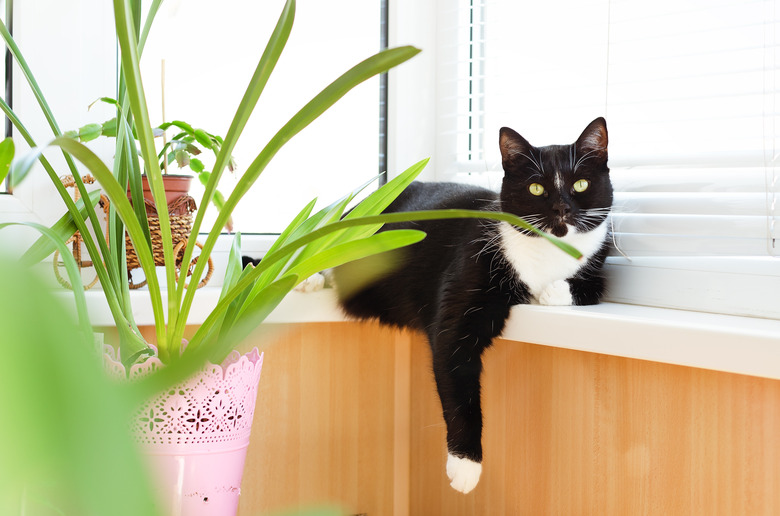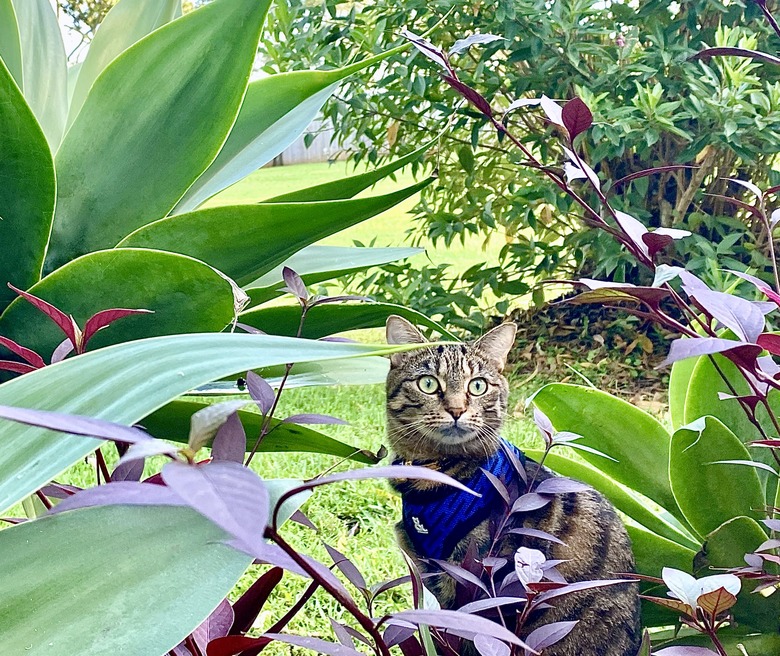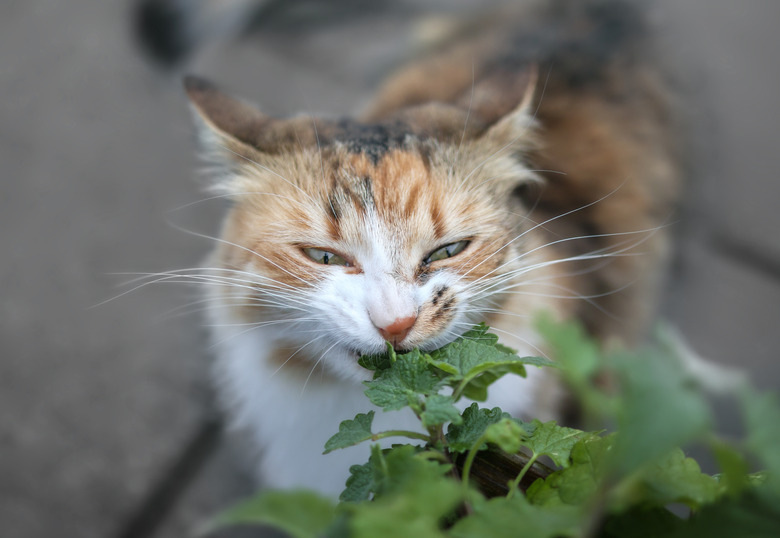Why Do Cats Love To Rub Against Plants?
You just bought some new plants, and already, your cat is rubbing up against them. It's kind of funny, but at the same time, you're curious about why your cat is doing this to your poor fiddle-leaf fig and bamboo palm. Is there any harm in this behavior? Or is your cat just being, well, a cat?
By learning more, you can understand your cat a little bit better and protect your plants at the same time. Here are some reasons why your cat could be rubbing up against your plants.
Your cat is releasing pheromones
Your cat is releasing
pheromones
Your cat interacts with the world around them by using their pheromones, which are chemical messages. We can't smell them, but cats can. In fact, cats have an incredible sense of smell, with their estimated 80 million olfactory receptors (scent receptors) in their noses.
The messages that they use to communicate with the world and other cats are released from scent glands on different parts of their body, including their chin, cheeks, paw pads, back, tail, rear, forehead, and lower ears.
Your cat may go up to your plant, rub it with an area of their body where their scent glands are located, and leave a message that the plant is safe. They might also be leaving a message that tells other cats to stay away or they might rub it to bond with other cats in the home. They could also be doing this because they are happy or are self-soothing.
Your cat is “bunting”
Your cat is "bunting"
Bunting is a term for head butting, and when it comes to cats, it's a sign of affection. They may rub their face against your face, or perhaps against a plant or planter. It's kind of like they're giving the plant a hug. You may hear them start purring, too.
Your cat is reacting to a specific plant
Your cat is reacting to a
specific plant
Do you keep live catnip in your house? Then you may notice your cat going wild around it and rub up against it, or rub up against other objects in your home. Catnip works by releasing nepetalactone into the air, which your cat gets high off when inhaling it. This happens whether the catnip is in the form of a live plant, oil extract, or dried plant.
If you have Actinidia polygama, aka silvervine, which is a type of plant that's an alternative to catnip, your cat could also be reacting to it. This plant bears kiwi-like fruit, and the leaves, buds, fruit, and stems of it make cats go crazy (in a good way). When there is silver vine around, your cat will likely rub their chin or face on a nearby surface, drool, lick, and roll around on the floor.
Are some plants dangerous to cats?
Are some plants dangerous to
cats?
If your cat likes to rub up against plants, then make sure you don't put harmful or toxic plants where they can get to them. For instance, you'd never want to put a cactus out in the open, because they could hurt themselves on this.
Also, you should never bring lilies into your home if you have a cat because if they eat the flowers, leaves, or stems, they could potentially pass away. Other toxic plants for cats include aloe vera, daffodils, asparagus ferns, silver jade plants, devil's backbone, and amaryllis.
If your cat is exhibiting signs of sickness, or you know for sure that they ate a toxic plant, then you need to get in touch with your veterinarian right away. If they are not available, you can also go to a 24/7 pet emergency room or call the Pet Poison Helpline at 800-213-6680 for immediate assistance.
In summary
In summary
Cats rub up against things because it's a way to mark their territory. They also enjoy bunting and may go wild around the catnip or the silver vine plant. Just be careful with any plants that are around your house, because some are toxic to your cat. Always store them out of reach, and you'll be able to keep your cat safe and sound.


